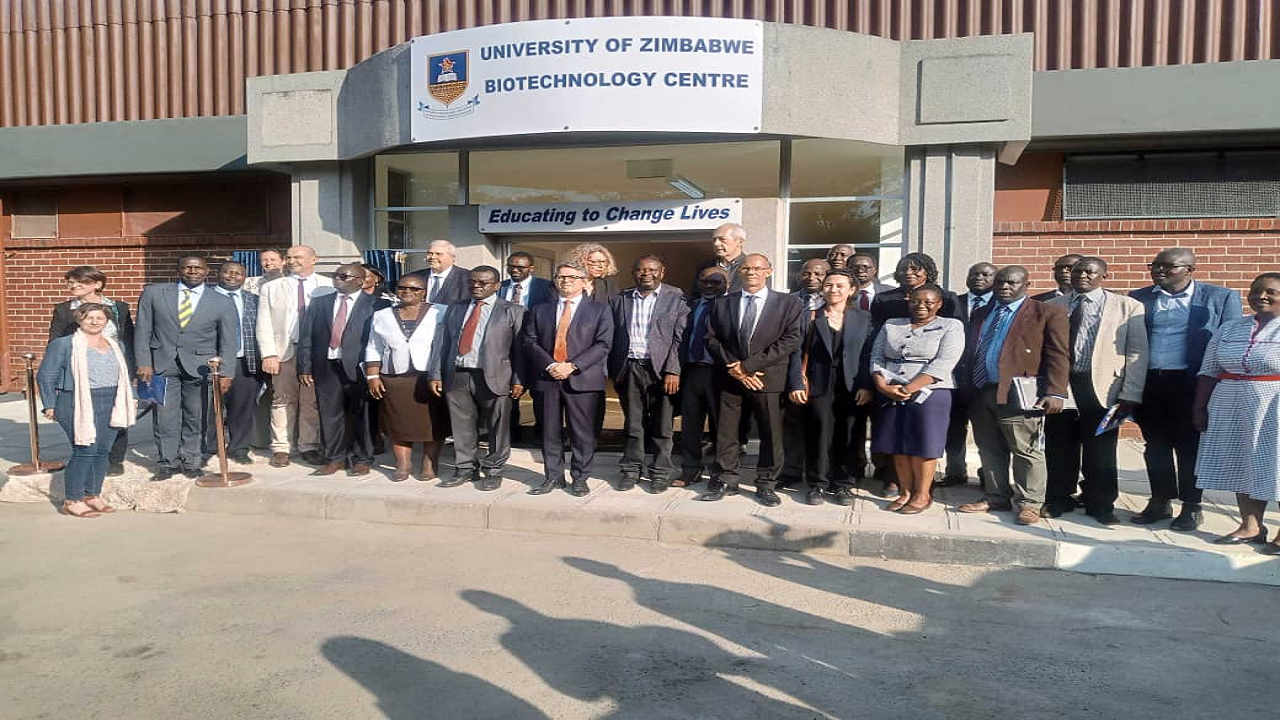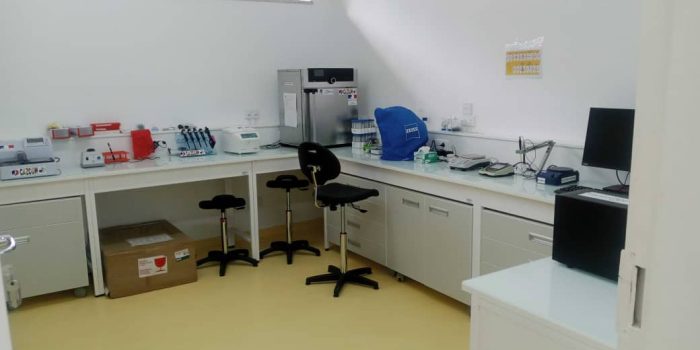
UZ’s Biotech Centre A Catalyst To Regional Scientific Research
Zimbabwean News You Can Trust
Own Correspondent
Evans Dakwa
The recently commissioned world class biotechnology lab at the University of Zimbabwe (UZ) will not only prepare Zimbabwe to meet its needs for capacity building, surveillance, diagnosis, monitoring and control of animal and zoonotic diseases, but also work as a potential regional hub of top notch research collaborations by SADC scientists.
The Biotechnology Center’s lab, which is a culmination of collaborative work of partners in the form of the French Agricultural Research Centre for International Development (CIRAD), French National Research Institute for Sustainable Development (IRD), Department of Veterinary Services of the Ministry of Lands, agriculture, fisheries, water, climate and rural development, and the University of Zimbabwe (UZ), will give practical training in various cutting-edge technologies for the surveillance of animal and zoonotic diseases and for the reception of students from the UZ and other universities in the country for basic training in serology and molecular biology integrated into university curricula.

It is earmarked to transcend beyond our borders.
UZ Vice Chancellor Professor Paul Mapfumo spoke at the commissioning and expressed gratitude to the French government through its development agencies for supporting the establishment of a biotechnology center that will support advanced research not only in Zimbabwe, but the SADC region.
“The bio-molecular platform could not have come at a better time, as it acts as a booster to our efforts and speaks to the University’s vision of becoming a global center of excellence in research and innovation by 2035. This lab has significantly contributed to one of our flagship programs in the area of veterinary science with a laboratory that will support advanced research, not only in the country but the SADC region and beyond,” said Professor Mapfumo.
“This laboratory, which is an advanced one, can be a center of excellence in Zimbabwe and the region and across Africa, it will enable us to be able to analyze , detect and have a proper surveillance system of animal diseases, it also will complement human health in terms of diseases that affect human beings under what we call the one health systems, the capabilities of this lab are many,” he continued.
CIRAD representative in Zimbabwe, Dr. Mathieu Bourgarel, was very happy with the commissioning of the biotechnology centre that will strengthen the capacity of the country in dealing with animal and zoonotic diseases fronted by top notch research.
“All the equipment you have seen in the lab was imported from overseas, and l am proud to say we have here in Zimbabwe what CIRAD has in its own laboratories in France, where it is a reference lab for several diseases worldwide. We have brought in the country the capacity to really develop research on animal and zoonotic diseases, “he said.
Of all the countries CIRAD is present in Africa, Zimbabwe is the first nation to receive support to establish such a biotechnology center with first class technology and equipment that effectively supports research to react and forecast animal diseases. The country recently experienced an attack on its national head from the January disease, and it is expected this lab will significantly contribute to the country’s ability to respond to such periodic diseases in the future.
The biotech center was financed to the tune of 2 million Euros from the French Agency for Development (AFD), with co funding from the University of Zimbabwe , CIRAD and IRD.



